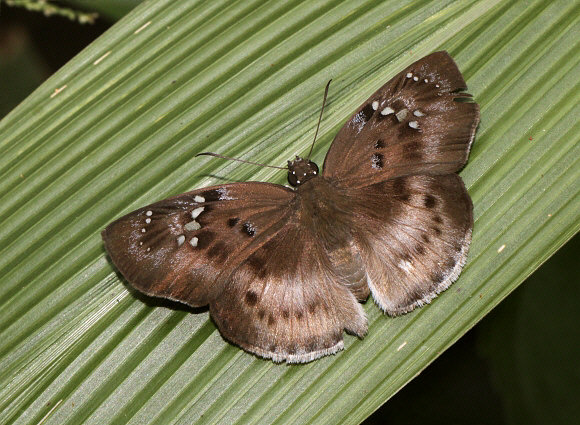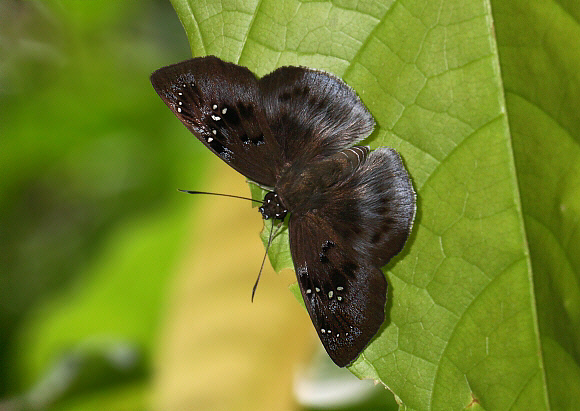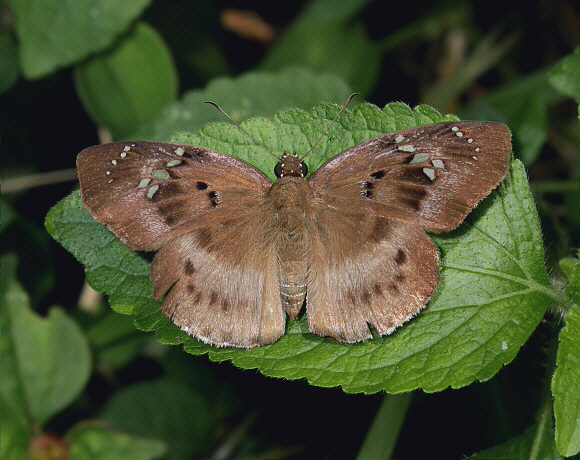
Introduction
The genus Tagiades comprises of 17 species, most of which are Oriental species. There are only 3 species in the Afrotropical region – flesus, and the Madagascan endemics samborana and insularis.
Tagiades flesus is a very common and widespread butterfly, found throughout sub-Saharan Africa including Madagascar.

Habitats
This species is found in primary and degraded forests, parks, gardens and along roadsides, usually in damp and semi-shaded situations, although it is also found in savannah habitats, usually in the vicinity of rivers or streams. It occurs at altitudes between sea level and about 1200m.
Lifecycle
The eggs are laid singly on leaves of the foodplants, and are coated with hairs from the tip of the female’s abdomen. The larva feed nocturnally on Dioscorea and Grewia.
Adult behaviour
Both sexes are usually seen singly or in two’s and three’s. In sunny conditions they spend much of their time resting with wings fully outspread, beneath the leaves of bushes.
Males periodically dart out to investigate passing butterflies. After the ensuing aerial combats they spend a few moments basking on the upper surface of a leaf, or spend a few seconds mud-puddling at a semi-shaded spot on the ground, before returning to hide under another leaf. Both sexes nectar avidly at the flowers of various bushes.

